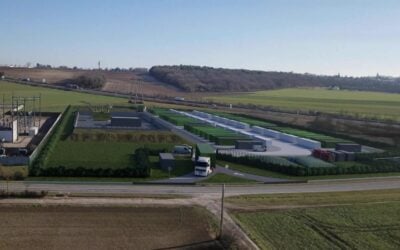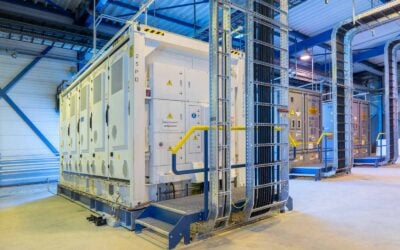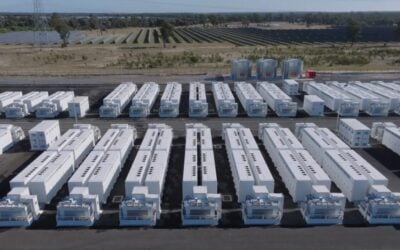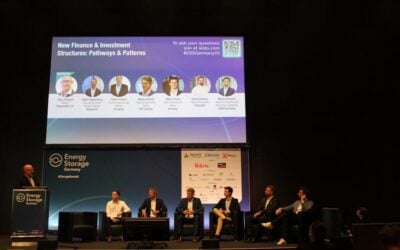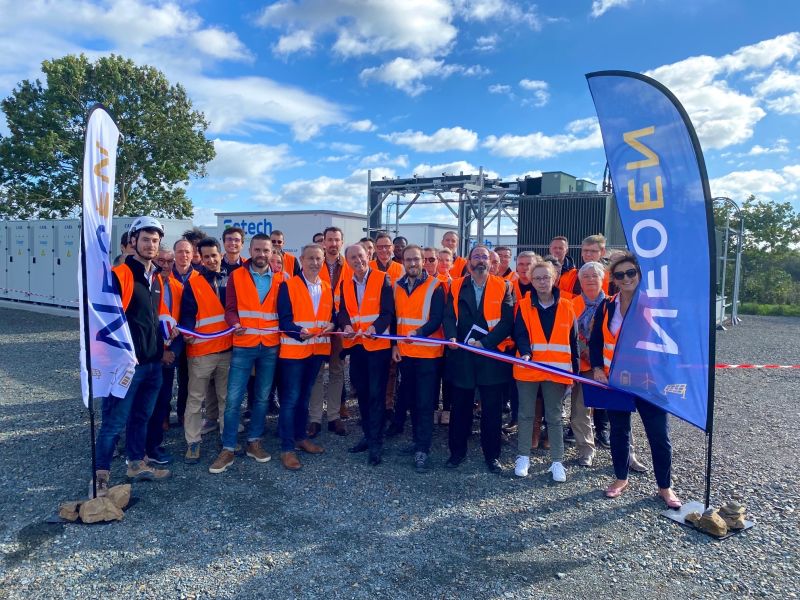
A roundup of energy storage news from Europe and South Africa, with Neoen, RWE and Bushveld / CellCube announcing major projects.
Neoen brings 8MW battery storage project online in France
Renewable energy developer Neoen has inaugurated an 8MW battery energy storage system (BESS) in Brittany, France.
Enjoy 12 months of exclusive analysis
- Regular insight and analysis of the industry’s biggest developments
- In-depth interviews with the industry’s leading figures
- Annual digital subscription to the PV Tech Power journal
- Discounts on Solar Media’s portfolio of events, in-person and virtual
The Paris-listed firm last week announced that the Pod-Tredan project in Côte d’Armor has been online and helping to balance the grid since August.
The lithium iron phosphate (LFP) BESS has a capacity of 8.2MWh, meaning a discharge duration of slightly over an hour, and is the largest in the northwestern region.
It was assembled and deployed by local system integrator Entech Smart Energies, which is also based in Brittany, in Quimper.
Some 40% of the project’s cost was funded by the European Regional Development Fund (ERDF), an arm of the EU, according to local outlets.
France is set to have around 670MW of installed grid-scale BESS projects by the end of the year, according to research firm Delta-EE. Recent projects to have come online include a 9MW/9MWh system from Innergex while the largest in the country was expanded to 61MW/61MWh at the end of last year.
RWE deploying BESS using second life electric bus batteries
Germany-headquartered energy company RWE is collaborating with bus manufacturer VDL Bus & Coach to repurpose used electric bus batteries in a stationary energy storage system.
RWE will use 43 batteries from VDL electric buses to create a 7.5MW power BESS for use at one of its power plants in Moerdijk, Netherlands.
Paul van Vuuren, CEO of VDL Bus & Coach said: “In project Anubis, we are initially using batteries taken from 43 electric VDL buses operated by Transdev in Eindhoven since 2016. These vehicles are currently getting new and larger battery packs, but the used batteries still have enough capacity to be used in stationary applications.”
He added that the application still required a lot of learning and so together with RWE, VDL would collect data on the project. The aim is to demonstrate and validate a BESS project using bus batteries and enable the large-scale rollout of similar systems. The company has 1,100 electric buses in operation today.
Energy-Storage.news will take an in-depth look at the second life BESS solution sector in the coming weeks – read previous coverage of the topic here.
Construction starts on Bushveld microgrid in South Africa using CellCube flow battery
Primary vanadium producer Bushveld Minerals has announced the start of construction at a flow battery-enabled microgrid at one of its mines in South Africa.
The company announced the start of construction of the 3.5MW solar PV, 1MW/4MWh vanadium redox flow battery (VRFB) microgrid on Twitter yesterday (17 October).
Austria-based VRFB company CellCube, in which Bushveld owns a 25% stake, is providing the battery system. On its website, CellCube says the VRFB will shift the solar power to alternative times of the day and provide arbitrage services, and will use vanadium provided by Bushveld.
The project has taken a while to get off the ground. European infrastructure solutions company Abengoa was selected as engineering, procurement and construction (EPC) partner back in 2020 but was replaced by CellCube the following year after Bushveld’s investment.


